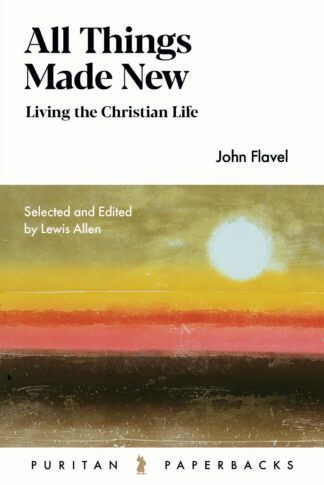The Memory of the Just
An account of John Swallow from Charlesworth written by his pastor, Mr E. Merrett.
* * *
John E. Swallow, for many years a deacon of the Particular Baptist cause at Charlesworth, Derbyshire, passed away on October 31st 1918, aged 56 years. In the following account we have a striking instance of the power of divine grace in one who had lived for years in a dead profession in the Church of England. He wrote an outline of his call by grace. He says:
As a boy and youth I walked in the pride of my heart; I was very religious, and prided myself in my goodness. I did not curse and swear like other youths that I knew. I signed the pledge [not to partake of alcoholic drink]. I attended church and school regularly, and looked upon others who did not do as I did, as not being as good as I was. I had the spirit of a Pharisee: ‘I am holier than thou!’ Such was my state as a carnal professor.
When about nineteen years old, I left the church because of the immoral conduct of the vicar, and though I knew nothing of the guilt of sin in my conscience, yet I could not hear a man preach that was living in sin. When the arrow of conviction entered my soul, I was not attending any place of worship. I well remember one night, when going home from my work, suddenly the sins of my youth rose up before me, and for the first time sin troubled me. I tried to quiet my conscience with making promises that I would leave off those sins, and then if I did my best, the Lord would do the rest. This was all I knew of the way of salvation. This quieted my conscience, but some time after, I was laid upon a bed of affliction, suffering from a serious attack of blood poisoning, and feared I was about to die. Now my sins rose again before me; I felt myself to be a lost sinner, and could not see how I could be saved. So I was like Job; I wished I had never been born. I thought the Lord would do with me as He said must be done to the fig tree, that He was going to cut me down as a cumberer of the ground. I felt myself to be the vilest sinner on earth. The words in Daniel sounded in my ears; ‘Thou art weighed in the balances, and art found wanting.’ I cried for mercy, and knew what the psalmist meant when he said ‘They reel to and fro, and stagger like a drunken man, and are at their wits’ end’ (Psalm 102:27). Truly I was there.
This agony of soul continued for over two years, and during that period I read the Scriptures to see if I could find anything to comfort me, but whatever I read, I found something to condemn me. One day the thought came, ‘Did you not hear a person say that Christ preached peace and pardon?’ So I said, ‘I will read nothing but Christ’s own words.’ Accordingly I searched for Christ’s words, but had not read far when I met with Christ’s denunciation of the Pharisees: ‘Woe unto you, scribes and Pharisees, hypocrites!’ (Matthew 23:13); and it was as if it said, ‘Thou art the man.’ This caused me to sink into fathoms deep, and I was in deeper distress than ever. Now I was at a loss what to do, but one day a ray of hope entered my soul from the words ‘Believe on the Lord Jesus Christ, and thou shalt be saved’ (Acts 16:31), followed by the words: ‘He is able also to save them to the uttermost’ (Hebrews 7:25). I began to consider the words, and saw I could not be beyond the uttermost, yet I still felt the burden of my sins. I then began to compare myself with characters, such as David in his sins. I saw they obtained mercy, yet this did not help me.
But the appointed time came. I had one day been in deep distress on account of my sins, when I began to think about the sufferings of Christ, and it was as though I could see Him hanging on the cross, and I cried, ‘O God, be merciful to me a sinner’ (See Luke 18:13). Immediately the words came, ‘Go thy way, thy sins be all forgiven thee.’ I got up comforted, feeling my sins were gone, and I could go on my way rejoicing. Then I began to see with new eyes, and could understand a little what the man meant that was born blind, when he said, ‘Whereas I was blind, now I see’ (John 9:25), and a little of what Christ said, ‘I will send unto you the Holy Ghost, the Comforter’ (see John 14:16, 17). And of what David said, ‘He brought me up out of an horrible pit, and out of the miry clay, and set my feet upon a Rock, and established my goings’ (Psalm 40:2). I felt like Paul when he said, ‘For me to live is Christ, and to die is gain’ (Philippians 1:21). Now the promises seemed to be all for me, so that I knew Paul was right in saying, ‘There is therefore now no condemnation to them which are in Christ Jesus’ (Romans 8:1)
It was not till after our brother was set at liberty that he entered the Particular Baptist Chapel at Charlesworth; for though he had not attended the church because of the conduct of the vicar, yet he had no liking or Dissenters. But one day a person conversing about religion said, ‘Why don’t you go to the Baptist chapel? They believe the same as you do.’ Accordingly he went, and the late Mr Newman of Bolton, was preaching, and Mr Swallow felt such a union of spirit to him that he said ‘This shall be my people.’ He attended regularly, and after a period was baptized by Mr Barne, one of their supplies, on October 3rd, 1892.
The writer knew Mr Swallow well, and can testify to his sterling worth as a man of God. He was a man of few words, but his conversation was savoury. He was favoured sometimes with good hearings; in conversation he would refer to them. Among them was once when he, with several Charlesworth friends, went to Manchester one night to hear Mr J. K. Popham at Rochdale Road, the text being 1 Timothy 2:5. Another occasion was at home, when his pastor spoke from the words, ‘Gad, a troop shall overcome him: but he shall overcome at the last’ (Genesis 49:19). This enabled him to look back, and also to look forward, and his heart rejoiced at the prospect of overcoming at the last. He had much to contend with. Godliness with him was a vital principle, of him it could be said, ‘He…shaketh his hands from holding of bribes’ (Isaiah 33:15). The writer has heard him state what he had to endure, because he would not be bribed. At one period the cause of truth at Charlesworth was very low, and for years he was the only male member, yet he struggled on patiently, and was an example of godly deportment.
His end was unexpected. The following was written by one of his daughters, who is a member of the same church:
Our dear father died on October 31st, 1918, after a brief but painful illness of cancer in the stomach. It was only about two months before his death that we realised it was something more than indigestion. The malignant nature of the disease developed rapidly, yet we hoped for the best, but had to prove that God’s ways are not our ways. During his illness his patient spirit was very noticeable. He was quite broken down when he said it was the first time for thirty years that he had missed going to the chapel. One evening he said, ‘Don’t worry about me. I had a promise this morning: “When He hath tried me, I shall come forth as gold”‘ (Job 23:10). One day when our pastor was with him, he said he could say with Job, ‘I know that my Redeemer liveth’ (Job 19:25), and like Paul, ‘To live is Christ, and to die is gain.’ The first of Ephesians was very sweet to him; in reading it he expressed great satisfaction. The Sunday morning before he died, he said, ‘Your father is soon going to leave you,’ expressing great sorrow at the thought of parting, but adding, ‘Thy will be done,’ pressing upon us the importance of attending the house of God. ‘Do your best for it,’ he said. ‘There the truth is preached.’ His bodily sufferings were great, but his peace of soul was also great; the consolations of God were not small. He repeated,
‘Though painful at present, ’twill cease before long,
And then O how pleasant the conqueror’s song!’‘Yes, I shall soon be landed
On yonder shores of bliss.’After this he gradually sank. He was heard to say, ‘Behold, I come quickly’; ‘Even so, come, Lord Jesus’ (Revelation 22:12, 20) and so passed from our midst a loving father and faithful counsellor.
‘Mark the perfect man, and behold the upright: for the end of that man is peace’ (Psalm 37:37). Never has a pastor had a more sober-minded and faithful deacon.
This article was taken with permission from the August 2017 edition of the Gospel Standard magazine.
Of Further Interest

All Things Made New
John Flavel for the Christian Life
Description
An account of John Swallow from Charlesworth written by his pastor, Mr E. Merrett. * * * John E. Swallow, for many years a deacon of the Particular Baptist cause at Charlesworth, Derbyshire, passed away on October 31st 1918, aged 56 years. In the following account we have a striking instance of the power of […]

Description
An account of John Swallow from Charlesworth written by his pastor, Mr E. Merrett. * * * John E. Swallow, for many years a deacon of the Particular Baptist cause at Charlesworth, Derbyshire, passed away on October 31st 1918, aged 56 years. In the following account we have a striking instance of the power of […]
Latest Articles
Finished!: A Message for Easter March 28, 2024
Think about someone being selected and sent to do an especially difficult job. Some major crisis has arisen, or some massive problem needs to be tackled, and it requires the knowledge, the experience, the skill-set, the leadership that they so remarkably possess. It was like that with Jesus. Entrusted to him by God the Father […]
Every Christian a Publisher! February 27, 2024
The following article appeared in Issue 291 of the Banner Magazine, dated December 1987. ‘The Lord gave the word; great was the company of those that published it’ (Psalm 68.11) THE NEED FOR TRUTH I would like to speak to you today about the importance of the use of literature in the church, for evangelism, […]
